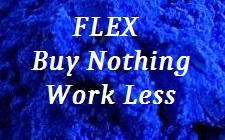QOTD: We have plenty of money, we’re just putting it all in the wrong places, giving it to the wrong people, who are using it for the wrong reasons.
.
.

Dollar Falls on China Call for World Currency; Stocks Pare Gain -sh
China, the biggest foreign holder of U.S. Treasuries, reduced its holdings of government notes and bonds by $4.4 billion to $763.5 billion in April, according to the data released on June 15 in Washington. People’s Bank of China Governor Zhou Xiaochuan in March urged the IMF to expand the functions of its unit of account and move toward a “super- sovereign reserve currency.”
“To prevent the deficiencies in the main reserve currency, there’s a need to create a new currency that’s delinked from the economies of the issuers,” the People’s Bank of China said in a review of the economy in 2008 released today. cont…
BBC: China argues to replace US dollar
.
.
 Will America’s Besieged Middle Class Snap? -sh
Will America’s Besieged Middle Class Snap? -sh
The current crisis could have been mitigated if increased household consumption had been financed through wage increases and if financial institutions had used their earnings to augment bank capital rather than employee bonuses.
The current system has failed because it was built on an incentive system that did just the opposite.
even I figured this one out – good article, good read
.
.
On the Edge with Max Keiser
1. Max – Paulson lying, fraud, thieving, larceny.
2. Max – China, Japan, crony, casino, capitalism, gulag.
3. Catherine Austin Fitts – Goldman Sachs, AIG, welfare, arrogance, larceny, criminals, betting against clients, Foxnews, CNBC, grand theft, US coup d’état.
4. cont., CIA recruits bankers, derivatives, WMFD , China speculation, commodities, bubble, Japanese nationals, US bonds, real or counterfeit, values of the dollar, do you own your home, naked short selling, bank holiday.
.
Also See goldmansachs666
.
PLAY IRAQI BIG OIL
Iraqi oil contracts to be auctioned in live TV ‘game show’ -sh
More than 30 energy companies, including BP, Shell and ExxonMobil will be forced to tussle for contracts worth billions.
Oil giants will be forced to tussle for contracts worth an estimated $16bn (£9.7bn) live on Iraqi television in a bizarre contest they fear could end up resembling a game show.
More than 30 energy companies, including BP, Shell and ExxonMobil may be forced to make last-minute alliances and reveal their offers in a tense round of bidding due to start early next week.
Iraq, which has the world’s third-largest proven oil reserves, plans to conduct the bidding for contracts to develop six major oil and two gas fields publicly over the course of a few hours.
The scheme appeared to come as a shock to some of the major oil companies. Others admitted they “had an inkling” that Baghdad would conduct the process in the open but had not expected a televised spectacle.
“It’s like a Eurovision song contest or a game show for energy companies,” said an executive at a top-three global oil giant. “A lot of work has gone into preparing our bid but I think on the day we are going to see the process may be quite fluid. If some companies find themselves disappointed on one contract they may have to make deals with other partners on the spot.”
It is likely that each energy company will submit a sealed bid, which will then be compared with other offers, before the government awards the contract there and then.
“BP certainly does not have any objection to efforts to make the process public and transparent,” a spokesman for the oil giant said last night.
There will later be a second bidding round for 11 oil and gas fields, as the government attempts to boost production from 2.4m to 6m barrels a day by 2015.
Analysts estimate that the contracts could yield $1 trillion for Iraq over the next 20 years.
The world’s biggest oil companies, also including Chevron, Total, Sinopec and ConocoPhillips, are expected to take part by making an offer for up to three contracts as members of a consortium.
However, there are a number of much smaller companies which are hoping to add specific areas of expertise by partnering with larger oil and gas groups. It is understood that Shell has been in talks about a tie-up with two Chinese energy groups.
However, it is possible that Baghdad may not look kindly on a bid from the Chinese state company, Sinopec, which took over London-listed Addax in Iraq’s Kurdistan region last week. The Iraqi oil minister, Hussain al-Shahristani, has not given his support to companies drilling in the semi-autonomous region, warning that it could hamper their success in the official contract process. But Kurdistan has been much quicker than the central government to develop its crude production with foreign partners.
telegraph UK
Iraq oil auction disappoints – Easy Oil
.
listen
.
.
IRAN
Preparing the Battlefield
The Bush Administration steps up its secret moves against Iran.
by Seymour M. Hersh
July 7 2008
Late last year, Congress agreed to a request from President Bush to fund a major escalation of covert operations against Iran, according to current and former military, intelligence, and congressional sources. These operations, for which the President sought up to four hundred million dollars, were described in a Presidential Finding signed by Bush, and are designed to destabilize the country’s religious leadership. The covert activities involve support of the minority Ahwazi Arab and Baluchi groups and other dissident organizations. They also include gathering intelligence about Iran’s suspected nuclear-weapons program.
 Clandestine operations against Iran are not new. United States Special Operations Forces have been conducting cross-border operations from southern Iraq, with Presidential authorization, since last year. These have included seizing members of Al Quds, the commando arm of the Iranian Revolutionary Guard, and taking them to Iraq for interrogation, and the pursuit of “high-value targets” in the President’s war on terror, who may be captured or killed. But the scale and the scope of the operations in Iran, which involve the Central Intelligence Agency and the Joint Special Operations Command (JSOC), have now been significantly expanded, according to the current and former officials. Many of these activities are not specified in the new Finding, and some congressional leaders have had serious questions about their nature.
Clandestine operations against Iran are not new. United States Special Operations Forces have been conducting cross-border operations from southern Iraq, with Presidential authorization, since last year. These have included seizing members of Al Quds, the commando arm of the Iranian Revolutionary Guard, and taking them to Iraq for interrogation, and the pursuit of “high-value targets” in the President’s war on terror, who may be captured or killed. But the scale and the scope of the operations in Iran, which involve the Central Intelligence Agency and the Joint Special Operations Command (JSOC), have now been significantly expanded, according to the current and former officials. Many of these activities are not specified in the new Finding, and some congressional leaders have had serious questions about their nature.
Under federal law, a Presidential Finding, which is highly classified, must be issued when a covert intelligence operation gets under way and, at a minimum, must be made known to Democratic and Republican leaders in the House and the Senate and to the ranking members of their respective intelligence committees—the so-called Gang of Eight. Money for the operation can then be reprogrammed from previous appropriations, as needed, by the relevant congressional committees, which also can be briefed.
“The Finding was focused on undermining Iran’s nuclear ambitions and trying to undermine the government through regime change,” a person familiar with its contents said, and involved “working with opposition groups and passing money.” The Finding provided for a whole new range of activities in southern Iran and in the areas, in the east, where Baluchi political opposition is strong, he said.
Although some legislators were troubled by aspects of the Finding, and “there was a significant amount of high-level discussion” about it, according to the source familiar with it, the funding for the escalation was approved. In other words, some members of the Democratic leadership—Congress has been under Democratic control since the 2006 elections—were willing, in secret, to go along with the Administration in expanding covert activities directed at Iran, while the Party’s presumptive candidate for President, Barack Obama, has said that he favors direct talks and diplomacy.
cont…
.
.






 Where’d the bailout money go?
Where’d the bailout money go?  The Federal Reserve refused a request by Bloomberg News to disclose the recipients of more than $2 trillion of emergency loans from U.S. taxpayers and the assets the central bank is accepting as collateral.
The Federal Reserve refused a request by Bloomberg News to disclose the recipients of more than $2 trillion of emergency loans from U.S. taxpayers and the assets the central bank is accepting as collateral.


